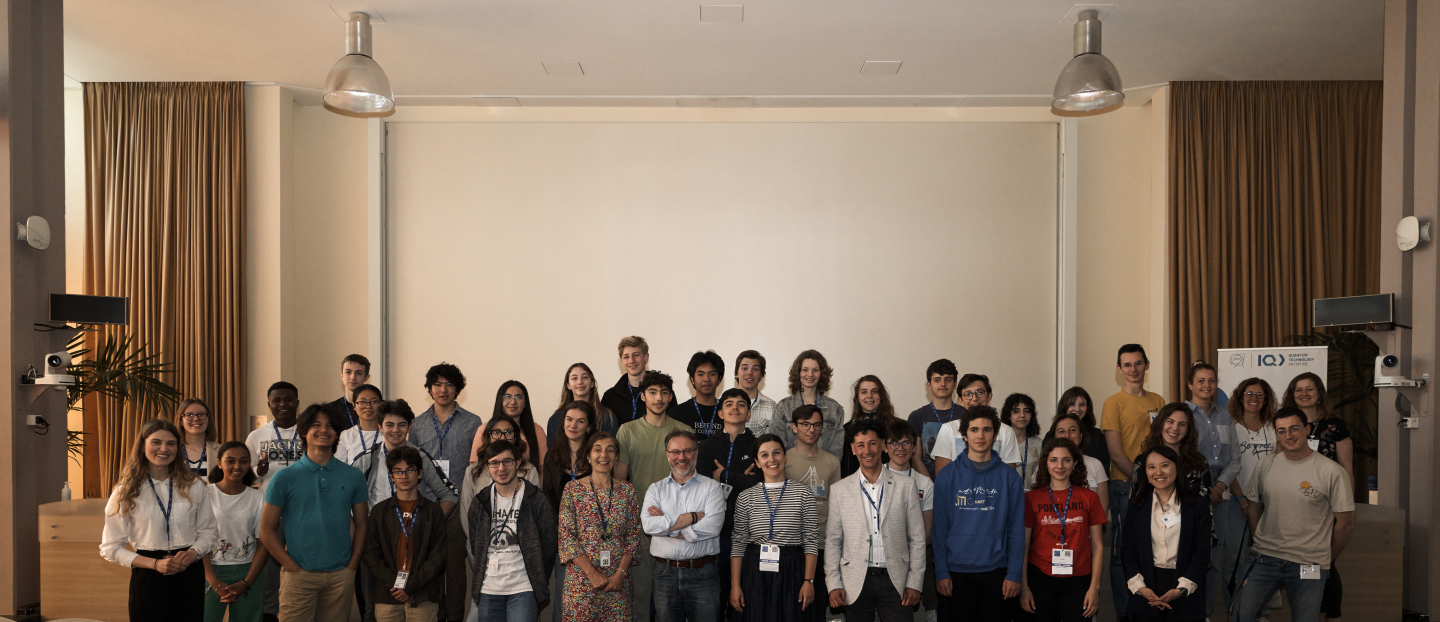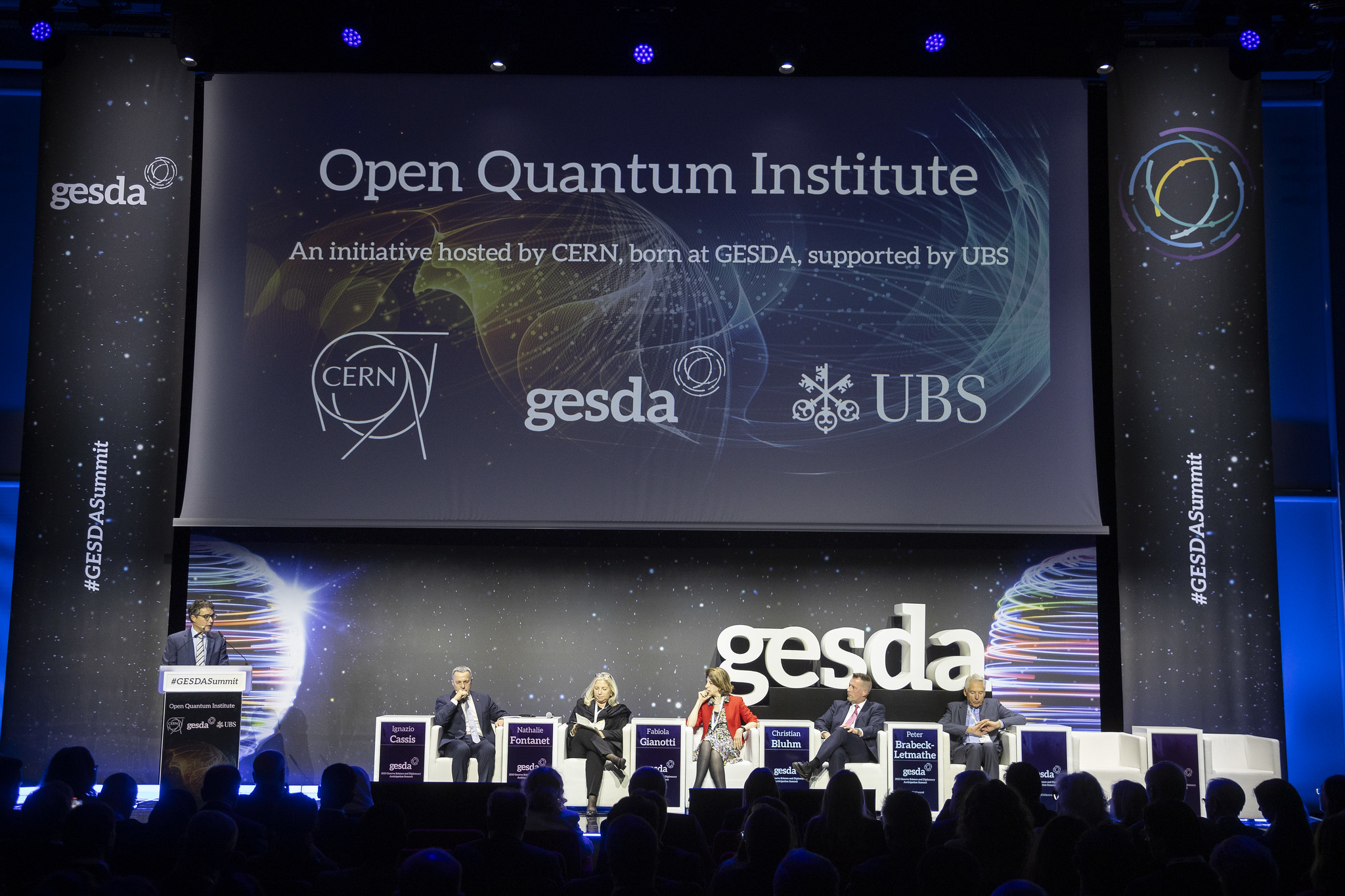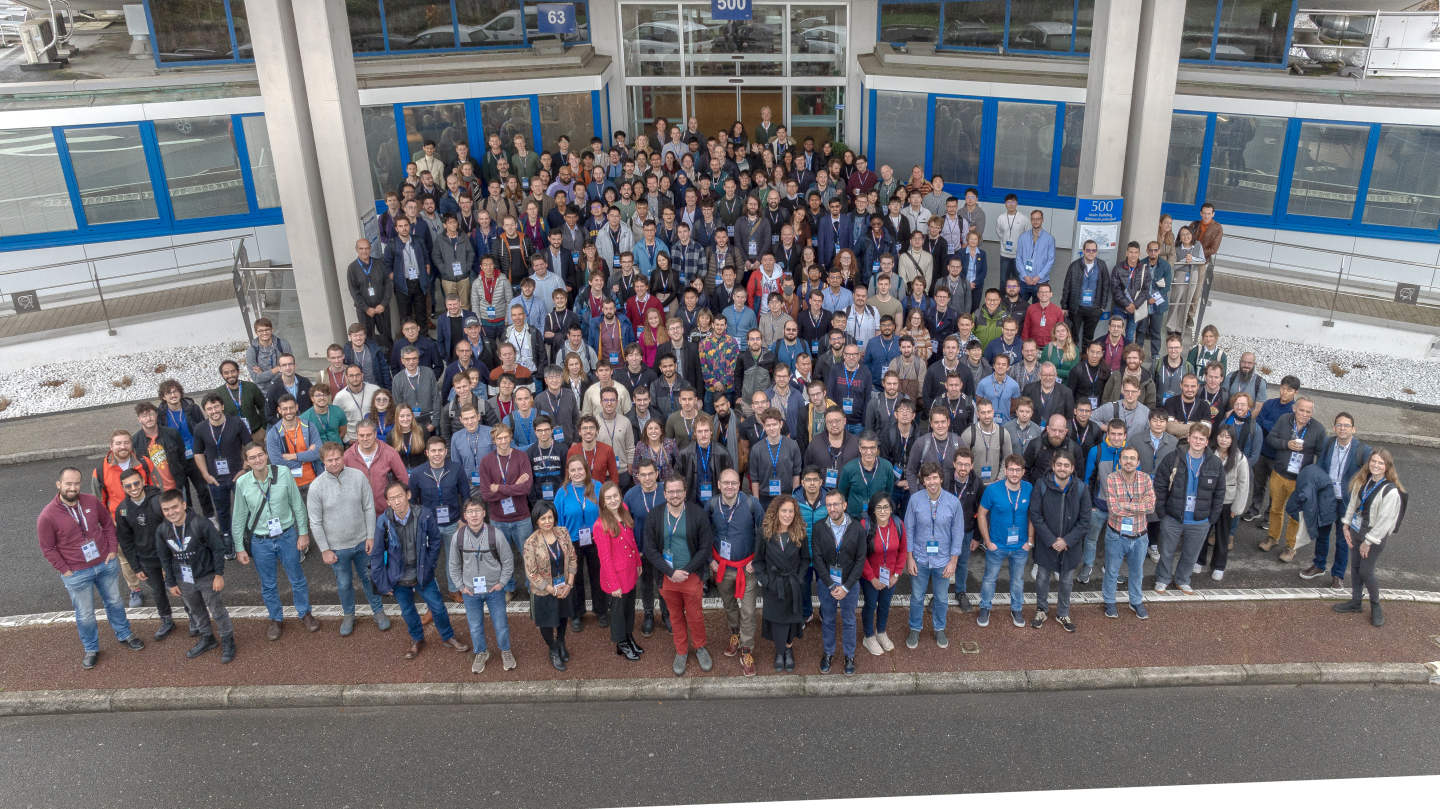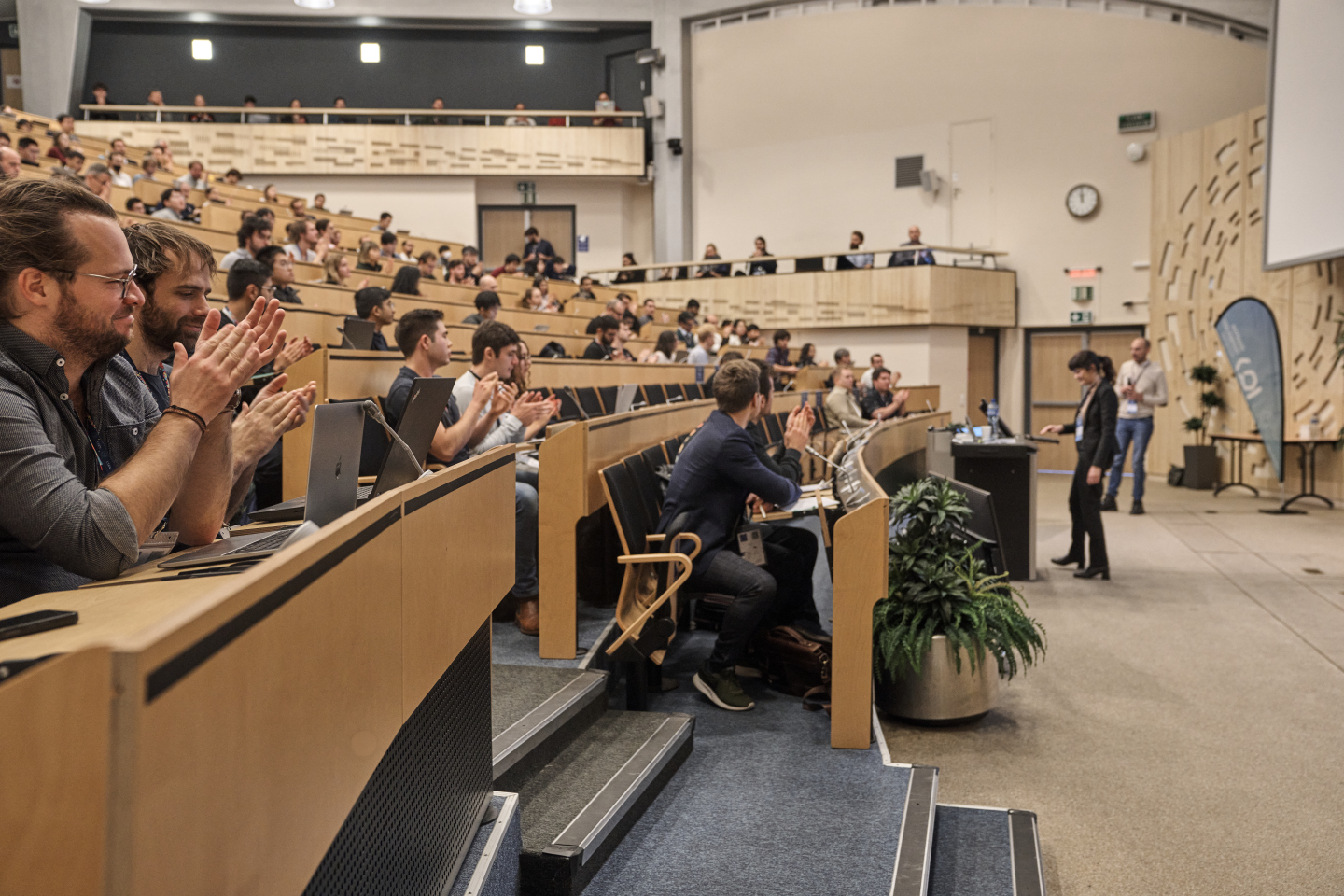The CERN Quantum Technology Initiative saw several highlights and milestones in 2023; from the new education and outreach activities to the launch of the Open Quantum Institute – there is a lot to proudly look back on and eagerly plan forwards from.
Follow along as we go through some of the main accomplishments together:
Training first!
The first quarter of the year marked the launch of the CERN QTI lecture series. Free and open to all, the talks focused on recent developments, opportunities and challenges in various areas of quantum research, while also providing tools and resources to learn more about the topics covered independently. Throughout the year, the series welcomed several young researchers and doctoral students, offering them a platform to showcase their work, exchange ideas and bring new insights into the rapidly evolving field of quantum science. Targeting primarily emerging professionals, the series was also open to senior scientists to share their ongoing research and view on the latest activities in the field.
As such, a special edition of the CERN QTI lecture series took place in November this year, featuring Dr Nicole Yunger Halpern, established theoretical physicist and award-winning book author from the US. In her talk, she presented a unique “steampunk” guide to quantum thermodynamics as a way to blend inventions of the past with futuristic technology. The recording of her talk, as well as of all the CERN QTI lectures, is now available at: https://quantum.cern/online-lecture-series
In the quarter two, for the second year in a row, CERN QTI supported and joined the World Quantum Day celebration, setting up a special quantum workshop for high school students. Co-organised with Finland’s QPlayLearn team, the event promoted early quantum-physics education to help build the future generation of quantum experts. During the half-day event, the students, aged 15 to 18, followed a lecture on the basic principles of quantum physics and rotated through seven quantum-game stations, each corresponding to one particular quantum physics concept, such as quantum states, quantum superposition, quantum entanglement and quantum tunnelling. The workshop was a great way to introduce students to the fascinating field of quantum technologies in a manner both accessible and interesting to them, but also scientifically accurate.

The white paper: Quantum computing for HEP.
The third quarter marked an important milestone for CERN QTI. A working group with experts from CERN, DESY, IBM Quantum and over 30 other organisations published a white paper identifying areas in both theoretical and experimental particle physics that could benefit from the application of quantum-computing technologies. Set-up after the first-of-its-kind QT4HEP conference hosted at CERN last year, the working group had met for the second time in 2023 to start selecting specific use cases from the activities listed in the white paper and take them forward through CERN’s and DESY’s participation in the IBM Quantum Network, and collaboration with IBM Quantum, under its “100x100 Challenge”. To read the full paper, visit the ArXiv at: https://cern.ch/quantumcomputingforhep.
Quantum technologies for society
The last quarter of the year was particularly full of major highlights. Following last year’s proposal of the Open Quantum Institute (OQI), made by GESDA, in collaboration with leading technology companies and research institutes, including CERN, a three-year-pilot phase of the programme was announced during the 2023 GESDA Summit. The OQI will be hosted by CERN and act as the societal arm of the CERN Quantum Technology Initiative. The ultimate goal is to help ensure that quantum technologies are put to use to achieve key United Nations Sustainable Development goals and reduce a possible new digital divide, by facilitating the widest possible access to quantum computing resources and technical expertise.

Conferences and events
Further in the year, the third edition of Sparks! on the theme of Future Quantum took place in the recently inaugurated CERN Science Gateway. Featuring expert talks and an artistic performance, the event invited participants to take a first look at the rapidly evolving field of quantum: its growing importance and potential impact. The recording of the event is accessible via https://www.youtube.com/watch?v=iksXhQu8R08
Among other news, was the annual Quantum Techniques in Machine Learning (QTML) conference, hosted for the first time at CERN in late November. The goal of the conference was to gather leading academic researchers and industry players to interact through a series of scientific talks focused on the interplay between machine learning and quantum physics. Held over six days, the event comprised talks by keynote and invited speakers, as well as tutorials, on topics covering the application of quantum techniques in machine-learning tasks and the use of machine-learning algorithms for studying quantum systems.

The future starts now
2023 was an important year for the CERN Quantum Technology Initiative. It has also concluded the first three-year-phase of the programme – the exploratory period full of investigations on the potential impact of quantum technology on the LHC community at CERN and particle physics in general. Several links and initiatives across the HEP community and beyond were established through more than 20 short-term R&D projects, co-development and outreach activities, proving CERN to be an important player in the field of quantum technologies and a facilitator of the cross-disciplinary collaboration and impact.
Capitalising on the achievements and expertise built during its first phase, CERN QTI will focus onwards on a core set of activities with a direct impact on the Organization and where CERN is uniquely positioned to make a difference. In its new phase, starting in 2024, CERN QTI investigations will be split into four main areas (“competence centres”): (1) Hybrid computing, (2) Platform demonstrators, (3) Quantum Network Hub, (4) Collaboration and Impact. The focus of each area will be to bring practical impact for CERN, support the development and adoption of quantum technologies beyond the Organization, and expand the current ecosystem of collaborations with academia, research institutes and industry.
The longer-term work plan for the second phase of CERN QTI is currently being developed and there will be more news coming in in the new year of 2024. Stay tuned to the latest CERN QTI updates on the quantum.cern website, as well as on the CERN QTI X and LinkedIn channels.

